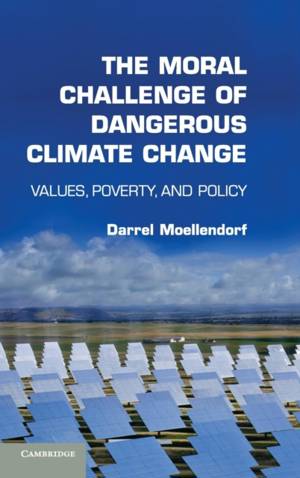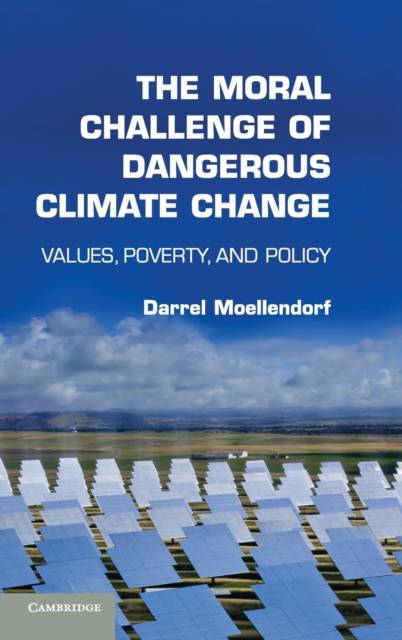
Door een staking bij bpost kan je online bestelling op dit moment iets langer onderweg zijn dan voorzien. Dringend iets nodig? Onze winkels ontvangen jou met open armen!
- Afhalen na 1 uur in een winkel met voorraad
- Gratis thuislevering in België vanaf € 30
- Ruim aanbod met 7 miljoen producten
Door een staking bij bpost kan je online bestelling op dit moment iets langer onderweg zijn dan voorzien. Dringend iets nodig? Onze winkels ontvangen jou met open armen!
- Afhalen na 1 uur in een winkel met voorraad
- Gratis thuislevering in België vanaf € 30
- Ruim aanbod met 7 miljoen producten
Zoeken
The Moral Challenge of Dangerous Climate Change
Values, Poverty, and Policy
Darrel Moellendorf
Hardcover | Engels
€ 131,45
+ 262 punten
Uitvoering
Omschrijving
This book examines the threat that climate change poses to the projects of poverty eradication, sustainable development, and biodiversity preservation. It offers a careful discussion of the values that support these projects and a critical evaluation of the normative bases of climate change policy. This book regards climate change policy as a public problem that normative philosophy can shed light on. It assumes that the development of policy should be based on values regarding what is important to respect, preserve, and protect. What sort of climate change policy do we owe the poor of the world who are particularly vulnerable to climate change? Why should our generation take on the burden of mitigating climate change that is caused, in no small part, by emissions from people now dead? What value is lost when natural species go extinct, as they may well do en masse because of climate change? This book presents a broad and inclusive discussion of climate change policy, relevant to those with interests in public policy, development studies, environmental studies, political theory, and moral and political philosophy.
Specificaties
Betrokkenen
- Auteur(s):
- Uitgeverij:
Inhoud
- Aantal bladzijden:
- 276
- Taal:
- Engels
Eigenschappen
- Productcode (EAN):
- 9781107017306
- Verschijningsdatum:
- 14/04/2014
- Uitvoering:
- Hardcover
- Formaat:
- Genaaid
- Afmetingen:
- 150 mm x 231 mm
- Gewicht:
- 498 g

Alleen bij Standaard Boekhandel
+ 262 punten op je klantenkaart van Standaard Boekhandel
Beoordelingen
We publiceren alleen reviews die voldoen aan de voorwaarden voor reviews. Bekijk onze voorwaarden voor reviews.











